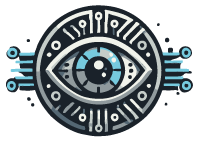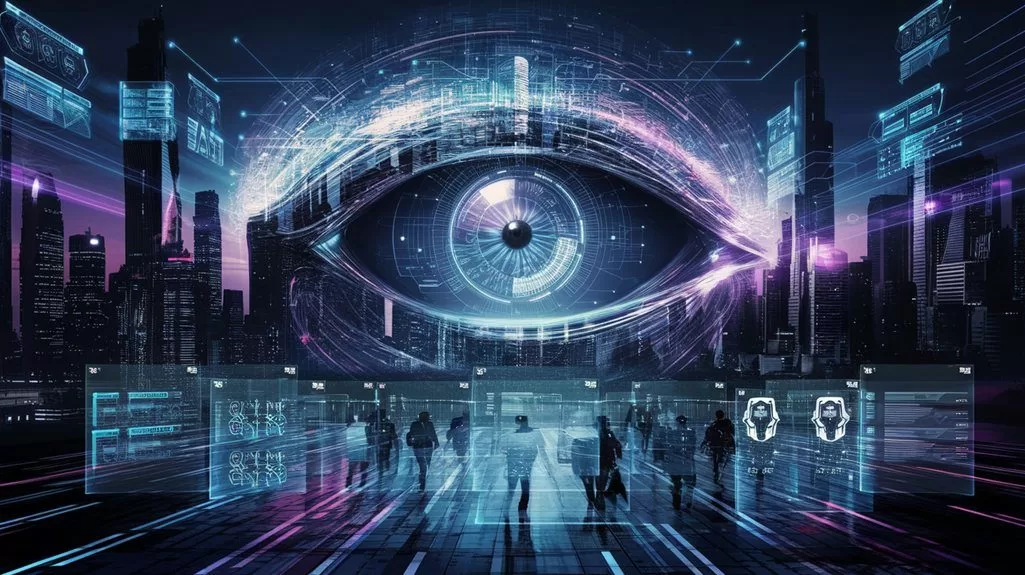AI revolutionizes work and privacy, blurring the lines between utopia and dystopia. It spawns 97 million new roles by displacing 85 million jobs—talk about a twist. Skills upended, personal information a commodity—who owns you? Economic boost of $13 trillion by 2030 sounds flashy, but at what cost? Hidden biases, deepfakes, and ethical quagmires muddy progress. AI runs the show, and reclaiming control? A pipedream. Curious for the full story?
Key Takeaways
- AI advances are transforming job markets by displacing roles while simultaneously creating new opportunities, necessitating urgent skill development.
- Personal data collection by AI systems raises significant ethical concerns about privacy and surveillance.
- AI's economic impact could widen existing inequalities if not managed with equitable policies.
- Bias in AI algorithms can perpetuate societal inequalities, demanding strong ethical guidelines for fairness.
- AI's pervasive influence poses challenges in reclaiming control over its impact on our lives and decisions.

As artificial intelligence (AI) advances, it's more than just another tech trend—it's a seismic shift. This shift is reshaping industries and altering the way people work, learn, and live. The automation impact is profound, streamlining tasks in sectors such as manufacturing and finance. Increased efficiency, reduced costs—sounds great, right?
Yet, while AI ethics are debated, the very fabric of the job market is being pulled apart and stitched back together under AI's watchful eyes. Job evolution is no longer a distant concept. It's happening now. AI is set to displace 85 million jobs, but fear not—97 million new roles are expected to surface. A net gain, they say.
Job evolution is here: 85 million jobs displaced, 97 million new roles emerging.
But here's the rub: 44% of workers' skills will be upended in the next few years. Education transformation is necessary to keep pace. AI can personalize learning, adapting to individual needs like a teacher who never tires. But it comes with its own set of challenges. Economic implications, anyone? AI could add a staggering $13 trillion to the global economy by 2030. A boon for some, a bane for others.
Privacy concerns loom large. As AI systems gobble up data to function, personal information becomes a commodity. Who's watching whom, really? Facial recognition technology is one such AI application that raises ethical concerns due to potential privacy invasion and data security risks.
And while autonomous vehicles promise a transportation transformation, there's the not-so-small matter of safety and control. Will self-driving cars follow the rules of the road? Or will they rewrite them?
In healthcare, AI is the unsung hero. Analyzing medical data to improve diagnostics and deliver personalized medicine. Yet, the ethical considerations are significant. Bias in AI systems can perpetuate societal inequalities if not addressed.
Oh, and let's not forget the deepfakes and misinformation. AI's ability to create realistic fakes is a double-edged sword. Truth is now a negotiable currency.
The economic implications extend beyond mere numbers. The digital divide is a stark reality. Skills gaps widen, and gender disparities persist. AI might be the great equalizer—or not.
As for the environment, AI's energy consumption could negate its benefits. A cruel irony. Strong ethical guidelines are needed as AI becomes more integrated into daily life, ensuring responsible use and addressing concerns of bias and accountability. The emergence of AI represents a natural progression in writing and content creation, transforming how we articulate ideas and engage with audiences.
AI is rewriting futures, indeed. It's watching every move, challenging norms, and raising questions that don't have easy answers. Can we take back what's been set in motion? Unlikely.
The AI-driven world is here to stay, for better or worse. So buckle up. This seismic shift is just beginning, and it won't wait for anyone to catch up.
References
- https://www.careervillage.org/questions/978999/how-will-ai-impact-the-future
- https://kevin.lexblog.com/2024/05/03/ai-is-changing-the-way-we-write-and-blog/
- https://builtin.com/artificial-intelligence/artificial-intelligence-future
- https://andrewchen.com/ai-blogging/
- https://www.techtarget.com/searchenterpriseai/tip/The-future-of-AI-What-to-expect-in-the-next-5-years









